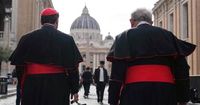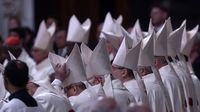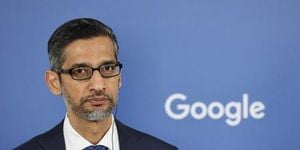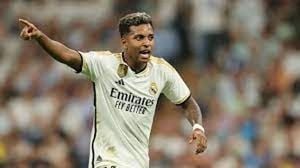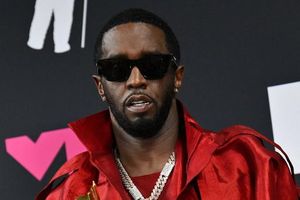As the Papal conclave begins today, the Catholic Church embarks on an age-old tradition to select a new leader following the death of Pope Francis last month. The conclave, a secretive process steeped in solemnity, will see 133 cardinals gather in the Sistine Chapel to cast their votes for the next pontiff.
The term "conclave" derives from the Latin word meaning "with a key," reflecting the locked doors that seal cardinals inside the chapel during the voting process. The conclave is set to commence with a special Mass at St. Peter’s Basilica, after which the cardinals will proceed to the chapel, cutting off all outside communication.
Cardinals under the age of 80 at the time of Pope Francis's death will participate in the voting, which is expected to start in the afternoon. Each cardinal will cast handwritten ballots, and the results will be burned immediately after each voting round. Black smoke will indicate that no decision has been reached, while white smoke will signal the election of a new pope.
The voting can occur up to four times a day, twice in the morning and twice in the afternoon, except for the first day. Historical precedents suggest that the conclave may conclude quickly; previous conclaves in 2005 and 2013 lasted just two days each. However, the current conclave is noted for its unpredictability, as the composition of the College of Cardinals has changed significantly under Pope Francis.
Among the names being speculated as potential successors are Cardinal Luis Tagle, a 67-year-old from the Philippines, who was considered a candidate for the first Asian pope. Other notable figures include Cardinal Peter Erdo, 72, the Archbishop of Budapest; Cardinal Reinhard Marx, 71, from Munich; and Cardinal Pietro Parolin, 70, who has served as Pope Francis’s secretary of state since 2014.
Interestingly, none of the cardinals from the UK or Ireland are seen as likely candidates. Cardinal Sean Brady from Ireland and Cardinal Michael Fitzgerald from Birmingham are ineligible to vote due to their age. Meanwhile, Cardinal Vincent Nichols from Liverpool and Cardinal Timothy Radcliffe from London have already ruled themselves out as candidates.
As the conclave unfolds, the dynamics among the cardinals will play a crucial role. The church is currently facing various challenges, including deep divisions and differing visions for its future. Some cardinals have expressed the need for a leader who can bridge these gaps and unite the faithful.
"We hope the new Pope will arrive in three or four days," said Chaldean Patriarch Cardinal Louis Raphael Sako, reflecting on the urgency felt by many in the church. The conclave’s historical context adds to the anticipation; the last time a conclave extended beyond four days was in 1922.
As the cardinals prepare to enter the chapel, they will wear traditional red garments, a symbol of their commitment to the church. The rituals surrounding the conclave are steeped in history, with oaths of secrecy being a fundamental aspect. Cardinal electors are required to sign an oath under threat of excommunication, ensuring that the proceedings remain confidential.
The election process itself is a blend of solemnity and tradition. After a successful vote, the newly elected pope will be asked two questions: whether he accepts his election and what name he wishes to adopt. The announcement of the new pontiff will be made from the balcony of St. Peter’s Basilica, accompanied by the declaration "Habemus Papam!" which translates to "We have a pope!"
As the world watches for the billowing white smoke that will signal the election, speculation about the next pope's identity continues. Some observers suggest that the next leader may come from unexpected backgrounds, including a first pope from the United States, although historically, this has been deemed unlikely due to the country's significant global influence.
Cardinal Robert Prevost, a Chicago native, and Cardinal Timothy Dolan, the Archbishop of New York, are among the names being whispered as possible contenders. Both have substantial followings and could bring a unique perspective to the papacy.
In the days leading up to the conclave, cardinals have engaged in discussions about the church's needs, reflecting on the qualities they hope to see in their new leader. The importance of addressing contemporary issues, such as migration and social justice, has been highlighted by many within the church.
"The church is built up from migrants," remarked Swedish Cardinal Anders Arborelius, emphasizing the need for a pope who can respond to the challenges facing the global community. As the cardinals enter the conclave, they will be tasked with selecting a leader who can navigate these complexities and guide the church through an uncertain future.
As the conclave unfolds, the anticipation builds not only within the Vatican but among the over one billion Catholics worldwide. The new pope's identity will not only shape the Catholic Church's direction but also influence global discussions on faith and morality.
In the coming days, the world will await the moment when the new pontiff steps onto the balcony of St. Peter’s Basilica, marking a new chapter in the history of the Catholic Church. The election of a new pope is not just a religious event; it is a moment of profound significance for millions, as they look to their new leader to inspire hope and unity in turbulent times.
